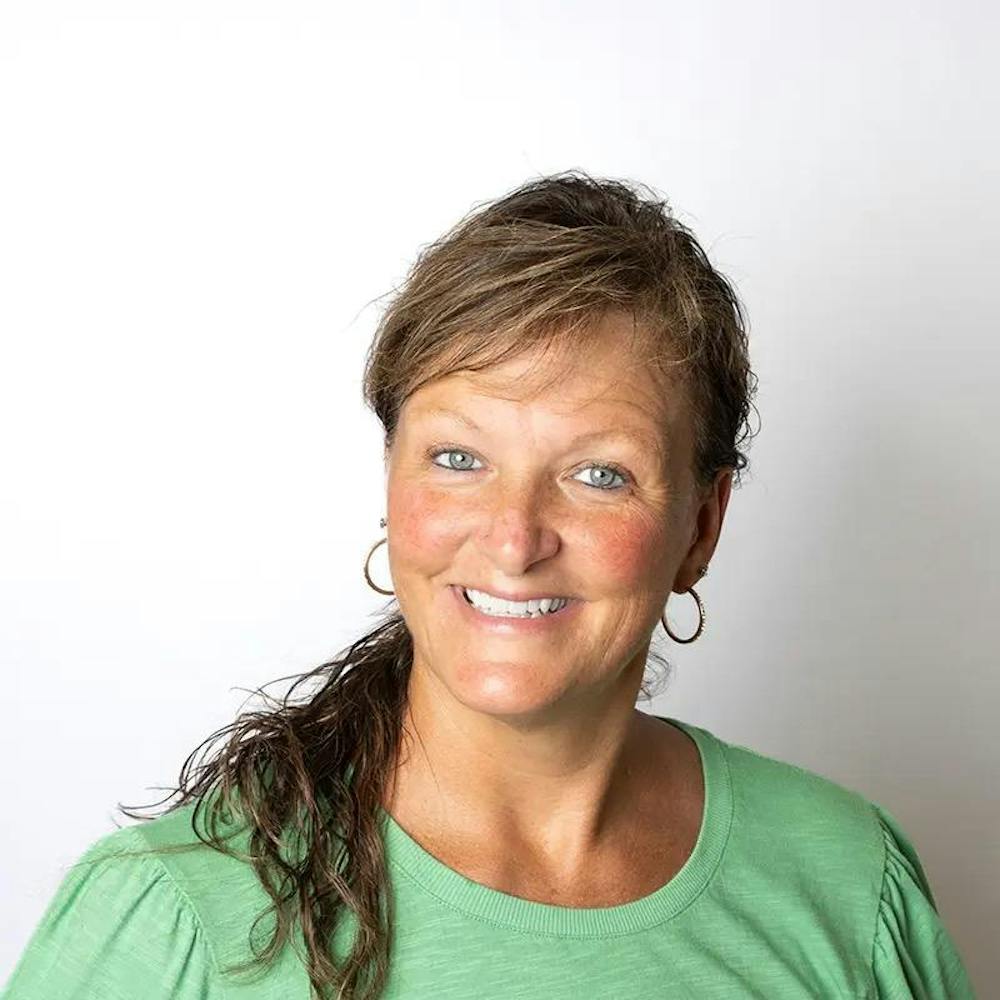It all started with a billboard, and a leap of faith.
Amy Sargent was driving on the highway with her family when she noticed a billboard advertising Taylor University’s Nursing Program. At that moment, Taylor had never crossed her mind.
Having been a nurse for thirty-five years, working in various settings such as surgery, obstetrics and pediatrics, Sargent never knew when her lifelong love for education would begin. Despite being new to teaching, her years of diverse experience allows her to prepare students for a variety of fields and strengthen their Christian witness in the nursing profession.
“The way I like to teach is to be the light, but not necessarily in words, but in actions, in what you're doing,” Sargent said. “And so you know, like I said, it's so hard because every patient is so different. You never know. You know, are they going to be accepting? Are they not? But nine times out of 10, they're accepting. They know. So, being able to just be there for them and I always say actions speak louder.”
She graduated from Anderson University with a degree in biochemistry and went on to get degrees from Ivy Tech Community College and Western Governors University (WGU).
While at Anderson, she was also on the basketball team. Her experience as a student athlete gives her a unique perspective and ability to relate to students that also balance the demands of sports and academics.
“The first four years taught me a lot about when you're an athlete and trying to do school – it's not easy, but I think it's going to help me be an educator and realize that I know how hard it was to try to be in the medical aspect of it,” she said.
Her experience playing college basketball also informs her educational approach and allows her to be more empathetic to students trying to balance the demands of a sport and academia.
Although this year she is not formally teaching any classes, starting next year she will be teaching a course about behavioral health as it relates to nursing. The course will acquaint students with behavioral and mental health as well as the different diagnoses.
She commented on the unique nature of mental health.
“When we talk about behavior, we're also talking about addictions, substance abuse, sexual abuse [and] behavioral abuses,” Sargent said. “So when you're talking about behavioral nursing or mental health nursing, it's not just your schizophrenia is, your depressions, your anxieties. maybe as a child, you went through something traumatic…it's the span of everything that could be mentally happening with somebody.”
Her encouragement to nurses in the field was to gain experience early on and seize opportunities to get exposure to the medical environment.
Whether it is through certified nursing assistant (CNA) or volunteer work, early exposure helps those who are interested in nursing determine what aspects of the medical environment they enjoy and what opportunities are possible in the nursing profession.
“So if I have a student coming to me, especially, like, maybe a first year, they're thinking about, ‘Okay, I'm a freshman, I'm really thinking about next year joining the nursing program, or, you know, I want to get it,’” she said. “I highly encourage them, ‘Work in it, be a CNA. Take that CNA class.’ Does it say you have to be a nurse? No, you don't. But work around it. Be around it (nursing-related professions).”
The field of nursing is challenging and requires empathy, resilience and humility.
Sargent hopes her passion for behavioral health will be underscored by her desire for students to learn to practice compassion. In this way, she believes students can learn to be the hands and feet of Jesus.
“I've worked with several different kinds of nurses, and it always comes back to having compassion. When you can be a compassionate nurse, that stands out.” She said, “I've always told myself, to be a good nurse, you have to be compassionate to everybody, not just your patients, but to your colleagues that you work with, you know, collaborating with the other aspects of nursing, your your physicians, your lab, your radiology. And so a good nurse knows how to be compassionate and work with all of those. You just have to learn everybody's there for the same reason, because we want this person better. We want to help this person. And so you just have to learn compassion. Just be compassionate to every aspect of nursing.”



